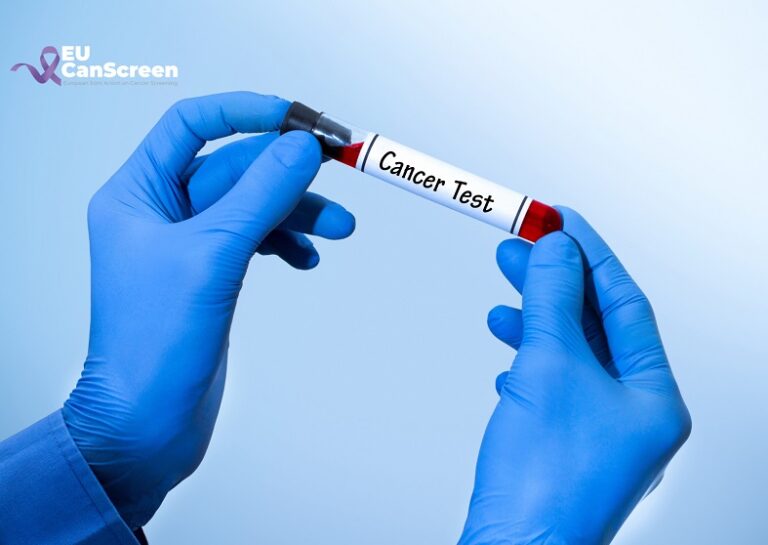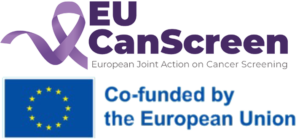Poland, Warsaw, 20.05.2025 – 22.05.2025
Professor Marcis Leja presented the TOGAS and EUCanScreen Joint Action Projects at the Cancer Mission Fair in Warsaw

The first Cancer Mission Fair, part of the European Cancer Mission Synergies initiative, took place in Warsaw, Poland, from 20 to 22 May 2025. During the ‘Prevention and Early Detection’ session, Professor Marcis Leja, Director of the Institute of Clinical and Preventive Medicine of the University of Latvia, presented the TOGAS project (Towards Gastric Cancer Screening Implementation in the European Union), dedicated to reducing the impact of gastric cancer, and the European joint action project EUCanScreen, which aims to develop new cancer screening programmes in Europe.
Professor Leja’s presentation, which was part of the first session dedicated to cancer prevention and early detection, highlighted the urgent need for effective screening methods to detect gastric cancer. In March 2023, LU KPMI began implementing the TOGAS project. Over 20 partners from 14 European countries are collaborating to implement gastric cancer prevention measures across all Member States. They are developing unified guidelines for gastric cancer screening implementation in Europe and recommendations for evaluating its effectiveness. In order to achieve this, three large-scale pilot studies have been launched to explore various approaches to the screening and early diagnosis of gastric cancer. This is necessary because there is currently a lack of effective screening methods for gastric cancer in Europe. Studies to date have shown that eradicating H. pylori – a bacterium that lives in the stomach and contributes to gastric cancer – could reduce gastric cancer deaths by up to 40%. Therefore, finding ways to implement this prevention strategy is crucial.
Another important European initiative focuses on the early detection of cancer. The EUCanScreen initiative, also known as the European Joint Action on Cancer Screening, aims to ensure that high-quality cancer screening programmes are implemented sustainably in all EU Member States. This initiative applies not only to traditional screenings for breast, cervical and colorectal cancer but also to new programmes recently recommended at the EU level for the early detection of lung, prostate and gastric cancers in at-risk groups. The main aim of EUCanScreen is to reduce the burden of cancer and achieve equitable access to screening, ensuring that everyone, regardless of where they live, has the opportunity to detect cancer early when it can still be successfully treated. The ambitious project is being coordinated by the Institute of Clinical and Preventive Medicine of the Faculty of Medicine and Life Sciences of the University of Latvia. They are working alongside Latvian expert teams from the Centre for Disease Prevention and Control, Riga Stradins University and Pauls Stradins Clinical University Hospital, as well as partners in 29 countries.
The ‘Establishing Cancer Mission Centres: Networks and Synergies’ (ECHoS) initiative aims to improve cancer care and research by fostering collaboration and civil society-led solutions. The project seeks to establish National Cancer Mission Centres (NCMCs) in each EU Member State and Associated Country to promote the integration of European Cancer Mission policies.
NCMCs are essential for promoting a comprehensive, patient-centred approach to cancer care that addresses prevention, treatment, and survivorship. By aligning cancer treatment priorities with national health strategies, the NCMCs aim to optimise resources and raise public awareness and involvement in cancer prevention and control.
Research suggests that a significant proportion of cancers (between 40% and 50%) could be prevented by lifestyle changes, highlighting the importance of prevention and early detection. Early detection strategies are also crucial; for example, timely cancer screening can improve treatment outcomes and survival rates. Detecting breast, cervical and colorectal cancers at an early stage leads to less invasive treatments and significantly reduces mortality rates.
#EUCanScreen
Subscribe to our newsletter to get news and updates.
Subscribe to our newsletter to get news and updates.

The general objective of EUCanScreen is to assure sustainable implementation of high-quality screening for breast, cervical and colorectal cancers, as well as implementation of the recently recommended screening programs – for lung, prostate and gastric cancers. EUCanScreen will facilitate the reduction of cancer burden and achieving equity across the EU.
This project has received funding from the European Union’s EU4HEALTH Programme under the Grant Agreement no 101162959










